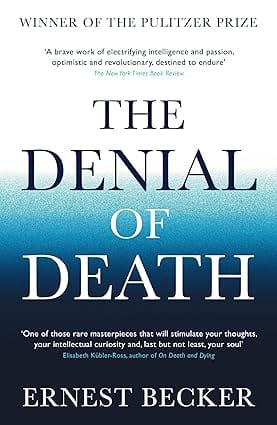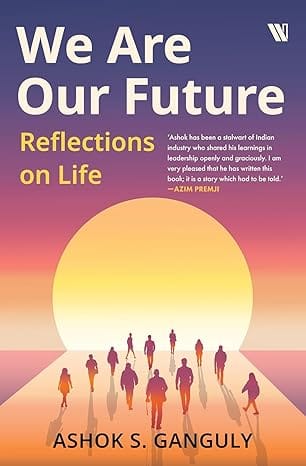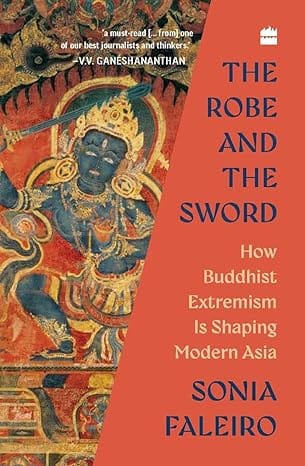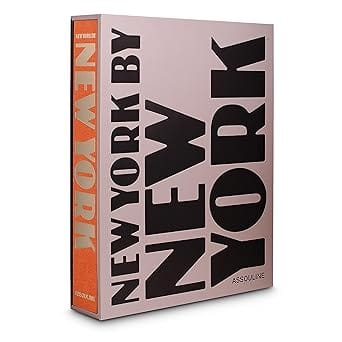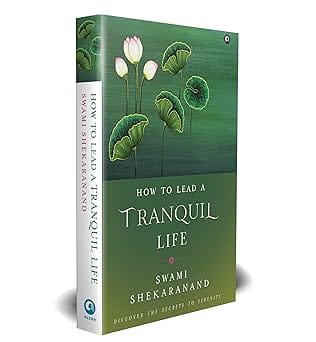WELCOME TO MIDLAND BOOK SHOP!
SHOP FOR
- Non-ficton
- Non-ficton
- Contemporary Fiction
- Contemporary Fiction
- Children
- Children
- Comics & Graphic Novels
- Comics & Graphic Novels
- Non-Fiction
- Non-Fiction
- Fiction
- Fiction
Shop No.20, Aurobindo Palace Market, Hauz Khas, Near Church +91 9818282497 | 011 26867121 110016 New Delhi IN
Midland The Book Shop ™
Shop No.20, Aurobindo Palace Market, Hauz Khas, Near Church +91 9818282497 | 011 26867121 New Delhi, IN
+919871604786 https://www.midlandbookshop.com/s/607fe93d7eafcac1f2c73ea4/69453da445ba84d539b38f9a/black-yellow-simple-bold-youtube-channel-logo-400-x-100-px-1--480x480.png" [email protected]9781788164269 66daee35ac7d19002ba9a40f The Denial Of Death https://www.midlandbookshop.com/s/607fe93d7eafcac1f2c73ea4/66daee35ac7d19002ba9a417/819iuow6z-l-_sy425_.jpg Winner of the Pulitzer Prize in 1974 and the culmination of a life's work, The Denial of Death is Ernest Becker's brilliant and impassioned answer to the 'why' of human existence. In bold contrast to the predominant Freudian school of thought, Becker tackles the problem of the vital lie - man's refusal to acknowledge his own mortality.
9781788164269
Winner of the Pulitzer Prize in 1974 and the culmination of a life's work, The Denial of Death is Ernest Becker's brilliant and impassioned answer to the 'why' of human existence. In bold contrast to the predominant Freudian school of thought, Becker tackles the problem of the vital lie - man's refusal to acknowledge his own mortality.
The book argues that human civilisation is a defence against the knowledge that we are mortal beings. Becker states that humans live in both the physical world and a symbolic world of meaning, which is where our 'immortality project' resides. We create in order to become immortal - to become part of something we believe will last forever. In this way we hope to give our lives meaning.
In The Denial of Death, Becker sheds new light on the nature of humanity and issues a call to life and its living that still resonates decades after it was written.
Review
It made me rethink the roots of our deepest fears and insecurities, and why we often disappoint ourselves in how we manifest them -- Bill Clinton - Guardian
A brave work of electrifying intelligence and passion, optimistic and revolutionary, destined to endure. - New York Times Book Review
An original, creative contribution to a synthesis of this generation's extensive explorations in psychology and theology. - Boston Herald
One of those rare masterpieces that will stimulate your thoughts, your intellectual curiosity, and last but not least, your soul. - Elisabeth Kubler-Ross, author, On Death and Dying
Concerns the 'universality of the fear of death'... Its approach is more philosophical than psychologically or medically empirical. -- Theology
Meditating on death and its influence on our culture... that the fear of death is the single motivating fact of human endeavour and that all art and philosophy come from trying to deal with obsolescence. -- The Catholic Herald
One of the few great books of the 20th or any other century. -- Albuquerque Journal Book Review
It is hard to overestimate the importance of this book: Becker succeeds brilliantly in what he sets out to do, and the effort was necessary. -- The Chicago Sun-Times
A brave work of electrifying intelligence and passion, optimistic and revolutionary, destined to endure. - New York Times Book Review
An original, creative contribution to a synthesis of this generation's extensive explorations in psychology and theology. - Boston Herald
One of those rare masterpieces that will stimulate your thoughts, your intellectual curiosity, and last but not least, your soul. - Elisabeth Kubler-Ross, author, On Death and Dying
Concerns the 'universality of the fear of death'... Its approach is more philosophical than psychologically or medically empirical. -- Theology
Meditating on death and its influence on our culture... that the fear of death is the single motivating fact of human endeavour and that all art and philosophy come from trying to deal with obsolescence. -- The Catholic Herald
One of the few great books of the 20th or any other century. -- Albuquerque Journal Book Review
It is hard to overestimate the importance of this book: Becker succeeds brilliantly in what he sets out to do, and the effort was necessary. -- The Chicago Sun-Times
Book Description
Ernest Becker tackles our relationship to mortality and searches for alternative ways to live
About the Author
Ernest Becker was born in Massachusetts to Jewish immigrant parents. After completing military service, in which he served in the infantry and helped to liberate a Nazi concentration camp, he attended Syracuse University in New York. In his early 30s, he returned to Syracuse University to pursue graduate studies in cultural anthropology. The first of his nine books, Zen: A Rational C
in stockINR 479
1 1
Email ID already exists!
Your Current password is incorrect
Password Updated Successfully
Thanks for your Feedback
- Home
- Non-Fiction
- The Denial Of Death
The Denial Of Death
ISBN: 9781788164269
₹479
₹599 (20% OFF)SIZE GUIDE
Sold By: Hauz Khas - Aurobindo Market
Details
- ISBN: 9781788164269
- Author: Ernest Becker
- Publisher: Souvenir Press
- Pages: 336
- Format: Paperback
Book Description
Winner of the Pulitzer Prize in 1974 and the culmination of a life's work, The Denial of Death is Ernest Becker's brilliant and impassioned answer to the 'why' of human existence. In bold contrast to the predominant Freudian school of thought, Becker tackles the problem of the vital lie - man's refusal to acknowledge his own mortality.
The book argues that human civilisation is a defence against the knowledge that we are mortal beings. Becker states that humans live in both the physical world and a symbolic world of meaning, which is where our 'immortality project' resides. We create in order to become immortal - to become part of something we believe will last forever. In this way we hope to give our lives meaning.
In The Denial of Death, Becker sheds new light on the nature of humanity and issues a call to life and its living that still resonates decades after it was written.
Review
It made me rethink the roots of our deepest fears and insecurities, and why we often disappoint ourselves in how we manifest them -- Bill Clinton - Guardian
A brave work of electrifying intelligence and passion, optimistic and revolutionary, destined to endure. - New York Times Book Review
An original, creative contribution to a synthesis of this generation's extensive explorations in psychology and theology. - Boston Herald
One of those rare masterpieces that will stimulate your thoughts, your intellectual curiosity, and last but not least, your soul. - Elisabeth Kubler-Ross, author, On Death and Dying
Concerns the 'universality of the fear of death'... Its approach is more philosophical than psychologically or medically empirical. -- Theology
Meditating on death and its influence on our culture... that the fear of death is the single motivating fact of human endeavour and that all art and philosophy come from trying to deal with obsolescence. -- The Catholic Herald
One of the few great books of the 20th or any other century. -- Albuquerque Journal Book Review
It is hard to overestimate the importance of this book: Becker succeeds brilliantly in what he sets out to do, and the effort was necessary. -- The Chicago Sun-Times
A brave work of electrifying intelligence and passion, optimistic and revolutionary, destined to endure. - New York Times Book Review
An original, creative contribution to a synthesis of this generation's extensive explorations in psychology and theology. - Boston Herald
One of those rare masterpieces that will stimulate your thoughts, your intellectual curiosity, and last but not least, your soul. - Elisabeth Kubler-Ross, author, On Death and Dying
Concerns the 'universality of the fear of death'... Its approach is more philosophical than psychologically or medically empirical. -- Theology
Meditating on death and its influence on our culture... that the fear of death is the single motivating fact of human endeavour and that all art and philosophy come from trying to deal with obsolescence. -- The Catholic Herald
One of the few great books of the 20th or any other century. -- Albuquerque Journal Book Review
It is hard to overestimate the importance of this book: Becker succeeds brilliantly in what he sets out to do, and the effort was necessary. -- The Chicago Sun-Times
Book Description
Ernest Becker tackles our relationship to mortality and searches for alternative ways to live
About the Author
Ernest Becker was born in Massachusetts to Jewish immigrant parents. After completing military service, in which he served in the infantry and helped to liberate a Nazi concentration camp, he attended Syracuse University in New York. In his early 30s, he returned to Syracuse University to pursue graduate studies in cultural anthropology. The first of his nine books, Zen: A Rational C
User reviews
NEWSLETTER
Subscribe to get Email Updates!
Thanks for subscribing.
Your response has been recorded.

India's Iconic & Independent Book Store offering a vast selection of books across a variety of genres Since 1978.
"We Believe In The Power of Books" Our mission is to make books accessible to everyone, and to cultivate a culture of reading and learning. We strive to provide a wide range of books, from classic literature, sci-fi and fantasy, to graphic novels, biographies and self-help books, so that everyone can find something to read.
Whether you’re looking for your next great read, a gift for someone special, or just browsing, Midland is here to make your book-buying experience easy and enjoyable.
We are shipping pan India and across the world.
For Bulk Order / Corporate Gifting
 +91 9818282497 |
+91 9818282497 |  [email protected]
[email protected]
Click To Know More
INFORMATION
QUICK LINKS
ADDRESS
Midland Book Shop - Hauz Khas
Shop No.20, Aurobindo Palace Market, Near Church, New Delhi
Shop No.20, Aurobindo Palace Market, Near Church, New Delhi

